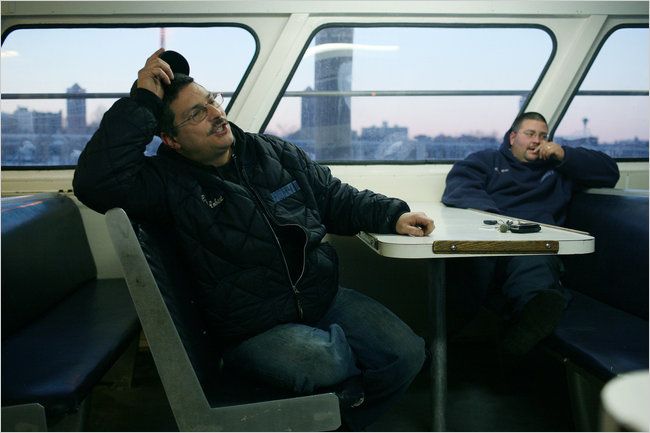A Tribute To An Old Fisherman

New York Times published a beautiful tribute to Chuck Geller, a local fisherman and World War II veteran, who passed away earlier this week. Here’s an excerpt:
At nearby piers, other fishing boats bobbed idly. As sunlight broke through the windows of the charter boat, the Brooklyn VI, its disappointed crew settled into the passenger booths and talked about loss: of the customers who once filled the fishing boats all year round, of the neighborhood’s vanishing landmarks, of a freedom to drift at sea without tightening government restrictions.
But mostly they talked about their friend Julius Geller, a former bomber pilot and an incurable lifetime angler who had died two days earlier, a week before he was to turn 94.
For decades, Mr. Geller was a constant, welcome presence on Brooklyn’s fishing boats. For years, he sat at a table in the cabin of the Brooklyn VI playing poker with a group of regulars as they sailed to the best fishing spots, like 17 Fathoms or Mud Buoy.
Brooklyn’s boat captains long ago had stopped charging Mr. Geller to come aboard. Even in his late 80s, he hauled his own catch over the side. Telling stories about him, the men flipped back through their own lives, and through the history of Sheepshead Bay, talking over one another, lest a detail be missed.
“This was a great place,” said the boat’s owner, Robert Sapanara, adding that Mr. Geller “was the greatest thing to come out of it.”
“He taught my father,” Mr. Sapanara added. “He taught me. He taught my sons. What a piece of work.”
No one called him Julius.
He was Chuck or Chuckie or Chuckles, a nickname picked up during a tough, impoverished childhood in East New York. During World War II, Mr. Geller, a second lieutenant, piloted a B-17 bomber on 34 missions. (In his later years, he would talk about his service, but not much. Many of his friends learned about his record on the Internet.)
… Mr. Geller was disturbed by the changes to his beloved bay, as the number of fishing boats dwindled, from dozens in the 1970s to seven today, his friends said. Fewer and fewer people seemed to care about fishing. At the same time, the boats had to travel farther and farther out to sea to find their prey.




